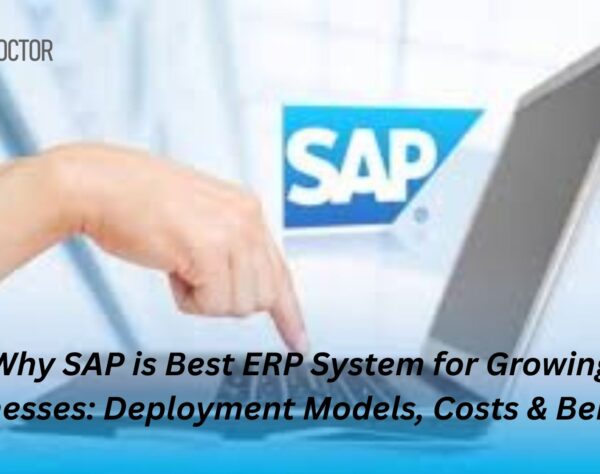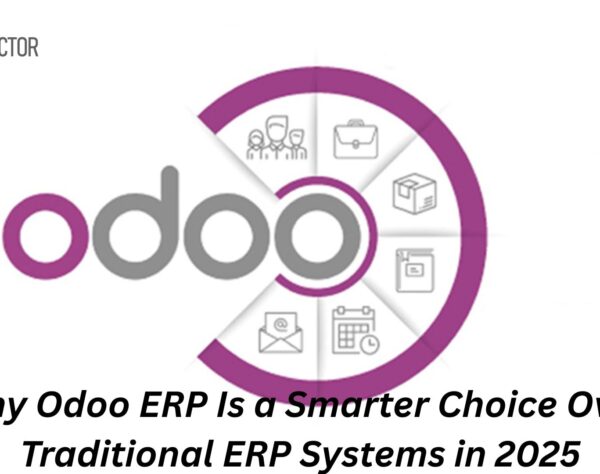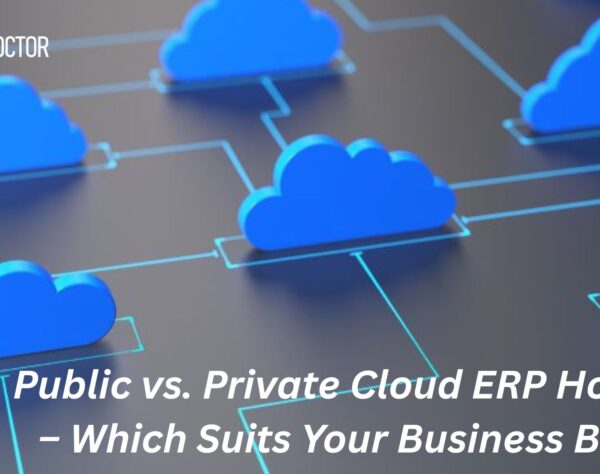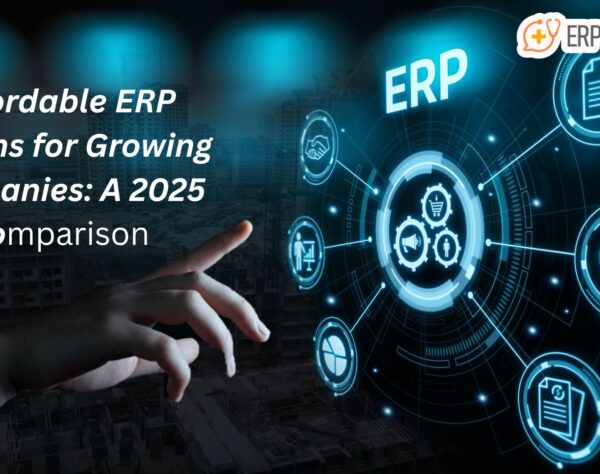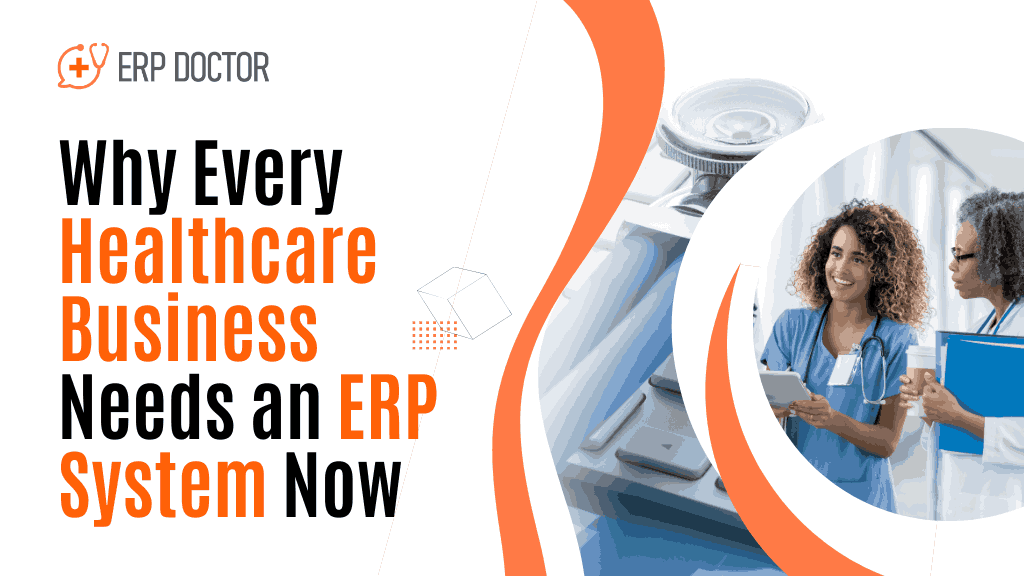
Why Every Healthcare Business Needs an ERP System Now

How ERP Can Streamline Healthcare Operations Fast
Healthcare businesses today face unique challenges: rising patient expectations, regulatory pressures, complex workflows, and the need to maintain quality care amid growing demands. In this ever-evolving environment, staying ahead requires more than just excellent service—it requires powerful tools to streamline operations, enhance patient outcomes, and ensure long-term sustainability. One such tool? The ERP Software.
As the healthcare sector continues to transform with digitalization, it’s no longer feasible for organizations to rely on outdated or fragmented systems to manage operations. The solution lies in adopting a modern ERP System that integrates all facets of healthcare management, offering seamless coordination and enhanced productivity.
The Rising Complexity of Healthcare Operations
Healthcare is no longer a simple, straightforward business. With the integration of technologies like telemedicine, electronic health records (EHR), and specialized patient care management systems, healthcare businesses are handling vast amounts of data across multiple departments.
Consider the following: a large hospital operates numerous departments—each with its own needs. From patient care and billing to inventory management and human resources, the sheer volume of data and administrative tasks can overwhelm traditional systems. Without a unified solution, the risk of errors, delays, and inefficiencies increases.
An ERP Solution addresses this complexity by offering a unified platform that manages every aspect of healthcare operations. The ERP System integrates these departments, eliminating the need for manual data entry, reducing the chance of errors, and ensuring that your healthcare organization operates more smoothly and efficiently.
Increased Accountability and Improved Patient Safety
In healthcare, accountability is everything. Patients trust healthcare providers with their most sensitive data, and organizations must meet high standards for care, accuracy, and transparency. An ERP Software plays a vital role in ensuring accountability by centralizing data and workflows.
Real-time access to patient records, treatment history, lab results, and billing data ensures that healthcare professionals are equipped with the information they need at every step of the care process. This enhanced accessibility reduces the risk of human error, like administering incorrect treatments, and ensures that patient safety is always prioritized.
Additionally, with ERP Integration, healthcare providers can better track patient progress and outcomes. This not only supports day-to-day care but also allows for data-driven analysis that can uncover areas for improvement in treatment plans, patient care protocols, and overall facility management.
Operational Efficiency Through Automation
Healthcare organizations are often burdened with repetitive administrative tasks that consume valuable time and resources. These tasks, such as appointment scheduling, claims processing, inventory management, and payroll, are essential but can drain staff productivity.
An ERP System helps automate these tasks, reducing manual intervention and the potential for errors. For instance, automating appointment scheduling and follow-up reminders ensures a more streamlined patient experience. Automating claims processing through ERP Software reduces administrative bottlenecks and speeds up reimbursements from insurance companies.
By freeing up time from administrative work, healthcare organizations can redirect efforts toward higher-value activities, such as improving patient care and enhancing employee satisfaction. ERP Implementation enables healthcare businesses to reallocate resources more effectively, improving overall operational efficiency and supporting growth.
Real-Time Data for Smarter Decision Making
When it comes to healthcare, informed decisions can mean the difference between life and death. But with scattered systems and outdated data, decision-making can be slow and often inaccurate. An ERP Solution removes the guesswork by providing healthcare organizations with real-time, accurate data across all departments.
For example, managers can easily access data on patient wait times, bed occupancy rates, staff availability, and inventory levels—all in one place. This allows healthcare executives and department heads to make quick decisions that optimize patient flow, manage staffing levels, and prevent overstocking of medical supplies.
Real-time data also provides valuable insights for predictive analytics. Healthcare providers can forecast patient demand, resource utilization, and even staffing requirements. This level of insight helps organizations avoid costly errors, streamline operations, and make proactive decisions that improve patient care.
Scalability to Keep Up with Healthcare Growth
As healthcare businesses grow, so do their challenges. Managing multiple locations, expanding service offerings, and integrating new technologies can strain an organization’s ability to keep up. An ERP System is designed to scale with your healthcare business, whether you’re expanding your team, adding new services, or opening new locations.
Scalability is one of the key benefits of an ERP Software. A well-implemented ERP Solution adapts to your business’s evolving needs, helping you seamlessly integrate new departments, locations, or services into the system. Whether you’re managing one clinic or a sprawling healthcare network, an ERP System can handle the complexity of growth without sacrificing efficiency.
A Single Source of Truth: Consolidating Data for Better Insights
Healthcare organizations often rely on multiple disconnected systems to manage operations. These systems store critical data, but because they don’t integrate with one another, the data can become fragmented, inconsistent, or outdated. An ERP Solution solves this issue by consolidating all your critical data into a single source of truth.
When all patient data, financial information, and operational metrics are stored in one centralized system, healthcare businesses can gain a complete and accurate view of their organization. Whether it’s understanding a patient’s treatment journey or tracking supply chain issues, having all the data in one place helps healthcare providers make informed, timely decisions.
Moreover, centralized data makes it easier to run comprehensive reports on everything from financial performance to patient satisfaction, enabling better strategic planning and more efficient resource allocation.
FAQ for Healthcare
1. What makes an ERP System essential for healthcare organizations?
An ERP System is essential for healthcare organizations because it centralizes and integrates all critical business functions, from patient care and billing to inventory and HR. This integration improves operational efficiency, reduces errors, and enhances the quality of care, ultimately helping healthcare organizations stay competitive and compliant in an increasingly complex environment.
2. How does an ERP Software improve patient care?
By streamlining administrative tasks, providing real-time access to patient data, and reducing the risk of human error, an ERP System ensures that healthcare providers have the necessary information at their fingertips to make timely and accurate decisions. This leads to better treatment outcomes, reduced wait times, and a more efficient patient experience.
3. Can an ERP System handle the complexities of multi-location healthcare businesses?
Yes, one of the main advantages of an ERP Solution is its scalability. Whether managing a single clinic or multiple locations, an ERP System can integrate operations, track performance, and consolidate data, ensuring that businesses can scale without losing operational efficiency or data accuracy.
4. How secure is the data in an ERP System?
Data security is a top priority in healthcare, and ERP Systems are designed with robust security features. These include encryption, role-based access control, and audit trails, ensuring that sensitive patient and financial data is protected in compliance with regulations such as HIPAA.
5. How does an ERP Solution help with healthcare compliance?
An ERP System helps healthcare businesses stay compliant with ever-changing regulations by automating data tracking, reporting, and auditing. This ensures that organizations can meet regulatory requirements more easily and avoid costly fines associated with non-compliance.
As the healthcare landscape continues to evolve, adopting an ERP System is no longer just a strategic choice—it’s a necessity. From simplifying operations and improving patient safety to enabling data-driven decision-making, an ERP Solution is the foundation that modern healthcare organizations need to thrive in today’s fast-paced world. It’s time to embrace the power of ERP and future-proof your healthcare business for success.
Ready to elevate your healthcare business with ERP? Start implementing ERP systems today and unlock new levels of productivity! Visit erpdoctor.in to begin your transformation!
Need professional assistance? Fill out the form below, and we’ll reach out to you soon!




